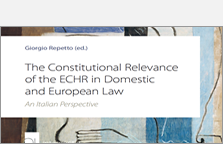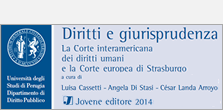VANNUCCINI S. – Gli effetti dello scenario emergenziale SARS-CoV-2 sulle condizioni di vita dei minori di età: evidenze di una overview
Autore dell’articolo/Author
Sabrina Vannuccini
Abstract
Una ragionata panoramica, basata su un approccio strutturato alla ricerca nella letteratura empirica, delle conseguenze sulle condizioni di vita dei minori di età causate dall’emergenza sanitaria provocata dalla diffusione del contagio da SARS-CoV-2.
Based on a structured approach to research in the empirical literature, this reasoned overview is dedicated to the consequences produced on the living conditions of minors by the health emergency resulting from the spread of the SARS-CoV-2 infection.. […]













